Cycling / Public Spaces / Traffic safety / Workshop
Shkodër, Albania: The Hidden Cycling Gem of the Mediterranean
Recently, Mobility Advisor Brett Petzer travelled to Shkodër, Albania to participate in a workshop hosted by the Dutch Cycling Embassy and the Embassy of the Kingdom of the Netherlands in Albania about safe cycling infrastructure as a part of Dutch Cultural Week. In this blog, Brett discusses the insights he gained during his visit and what other cities can learn from Shkodër.
From the moment you step into Shkodër, Albania, you are immersed in a cycling culture where traveling by bike is an everyday norm. Here, the streets hum with the quiet energy of people of all ages biking to work, running errands, or transporting goods to the local market on sturdy, old-school cargo bikes. But don’t call them “cyclists.” They’re simply people getting where they need to go, with a bike as the most practical tool in their daily routine.
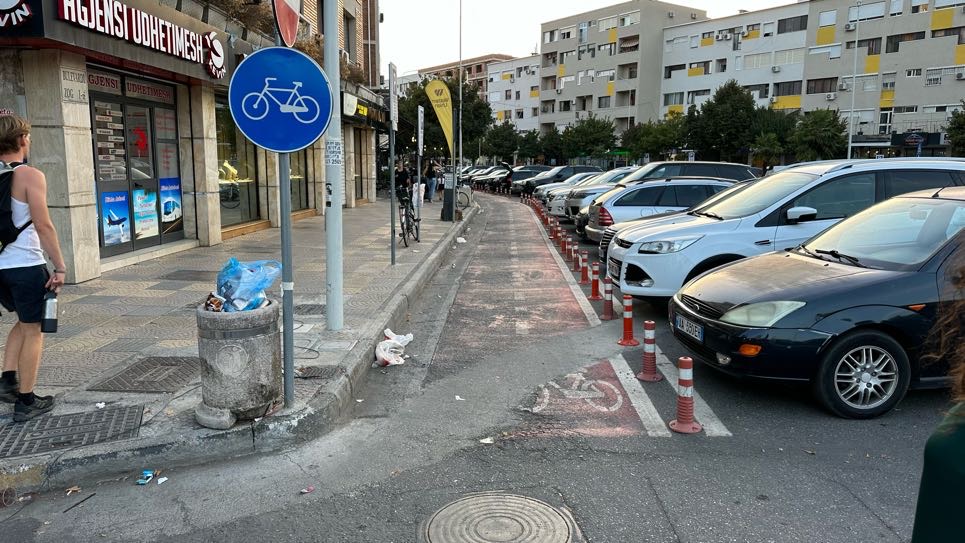
At a recent workshop organized by the Dutch Cycling Embassy and the Embassy of the Kingdom of the Netherlands in Albania during Dutch Cultural Week, the conversation centered around how Shkodër could build on its cycling legacy by investing in safer, more modern infrastructure. But as anyone who’s been to Shkodër can tell you, cycling here isn’t just a trend; it’s a way of life that’s woven into the city’s history.
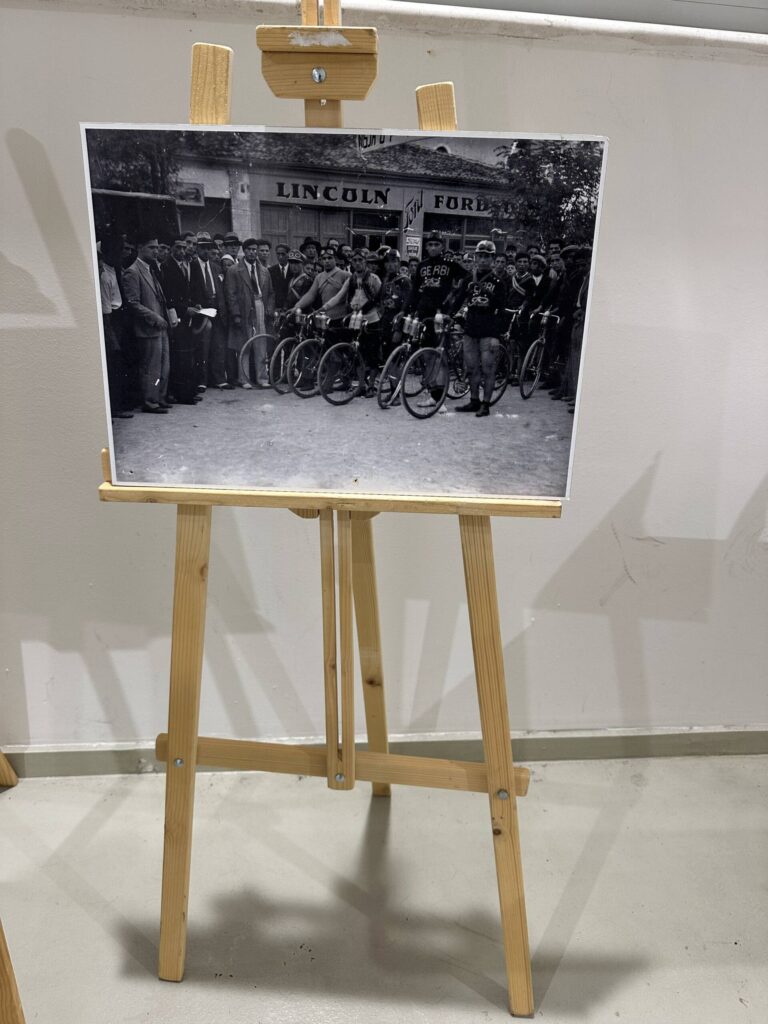
The cycling culture in Shkodër has been an essential part of the city for decades. A vintage picture displayed at the entrance of the workshop showcased this deep-rooted tradition, illustrating how bicycles have long been a symbol of movement in the city. However, while cycling has been the most practical mode for decades, the infrastructure supporting it is only a recent development.
Interestingly, Shkodër’s streets were originally designed more for pedestrians than cyclists. The narrow, winding roads and informal car parking unintentionally created “traffic calming,” slowing cars and making it safer for people on bikes to navigate. Drivers move with caution because speeding isn’t an option. Add to this the flat terrain, compact layout, and vibrant public spaces, and you have a city where cycling naturally flourishes, even without dedicated bike lanes.
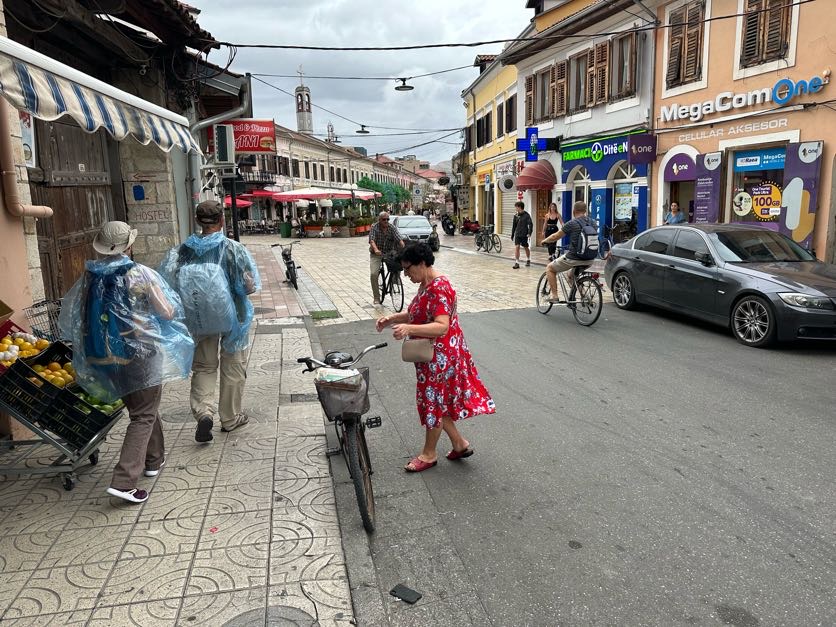
Yet things are changing. The city has formalized its cycling culture in recent years with new bike lanes and parking spaces. While the charm of the old pedestrian zones remains intact, these modern additions show Shkodër’s commitment to maintaining its biking tradition as the city evolves.
Shkodër’s cycling success is not just a result of its physical layout, but also its unique historical context. Until 1991, private car ownership was illegal in Albania due to communist rule. Even after the legalization of owning private cars, the city maintained a culture of enjoying car-free public spaces. This historical backdrop, combined with a centuries-old walkable layout, sets Shkodër apart from other cities in the Mediterranean and contributes to its cycling success.
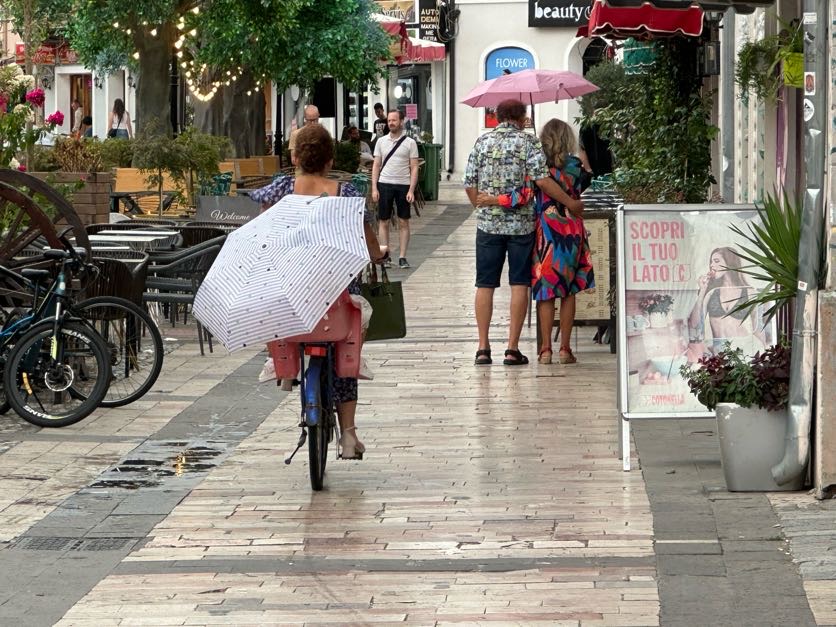
The workshop, attended by Dutch Ambassador to Albania Reinout Vos and Shkodër’s Mayor Benet Beci, was focused on how the city can continue to grow without relying on cars. The vision is clear: expand tourism, housing, and infrastructure while keeping car use in check. The city is working on a new Sustainable Urban Mobility Plan (SUMP) under the theme “Going Dutch,” with the help of Sustainable Urban Mobility Expert Cosimo Chiffi. Mobycon also supports this vision, aiming to help the city grow its economy without increasing car dependency.
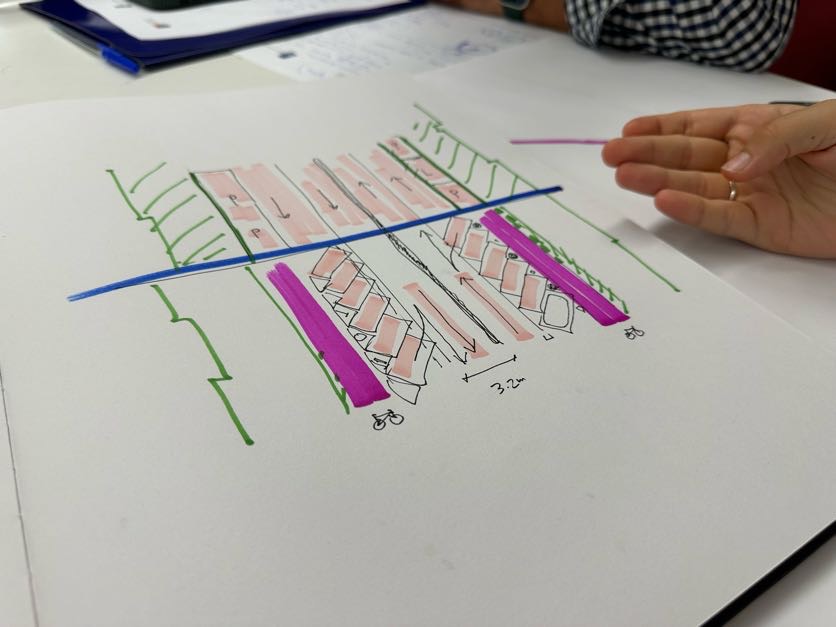

Shkodër’s success in promoting sustainable transportation offers valuable insights for other cities across the Mediterranean. While not every city may have Shkodër’s advantages, many share its dedication to car-free public spaces. By focusing on creating vibrant, people-friendly streets, Shkodër has proven that sustainable transportation isn’t just possible; it’s a pathway to long-term growth and livability. Shkodër’s example stands as a beacon of hope, inspiring other cities to consider a similar approach to urban planning and transportation.
Are you interested in learning more about Shkodër’s cycling culture or how your city can follow a similar path? Feel free to contact us for more insights and information.

